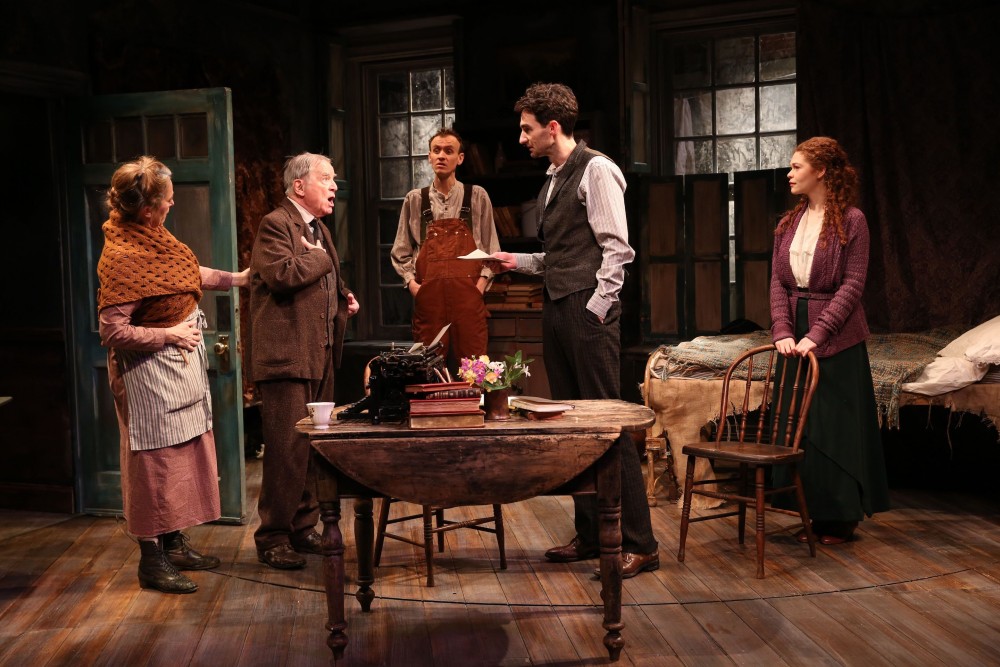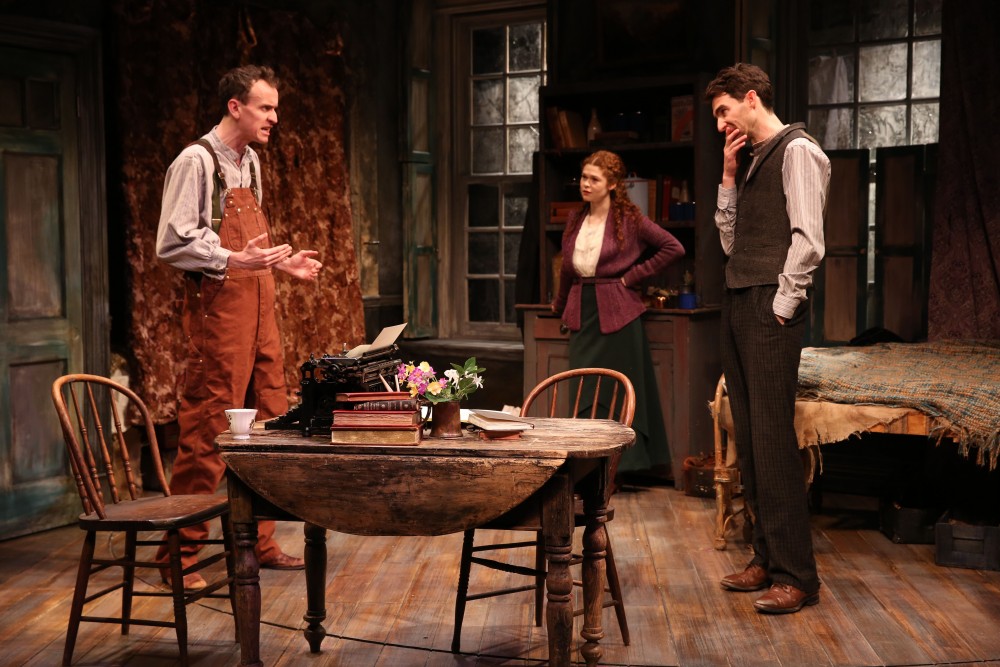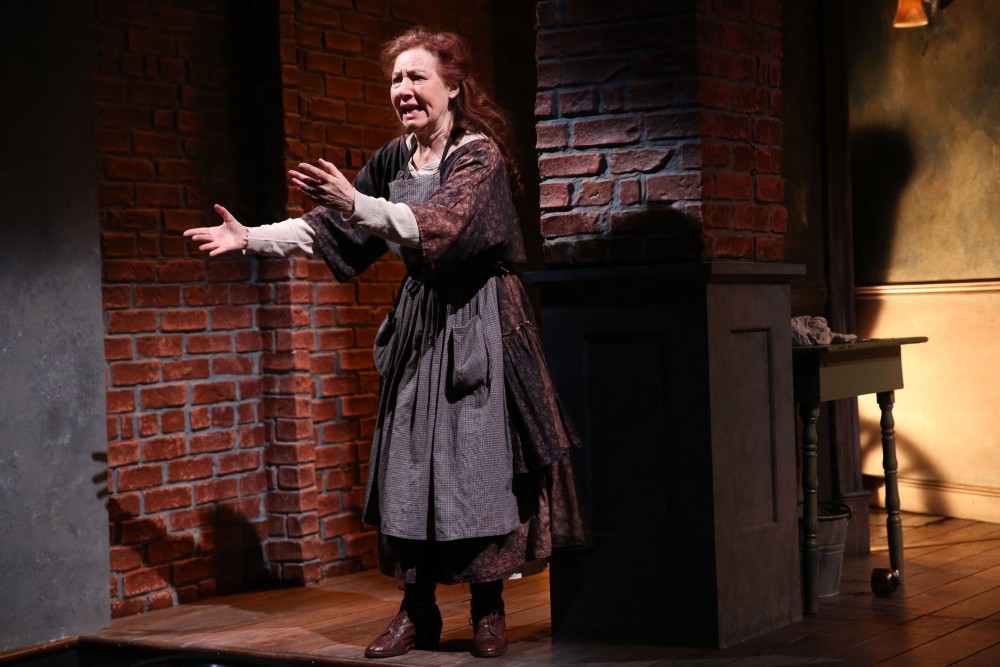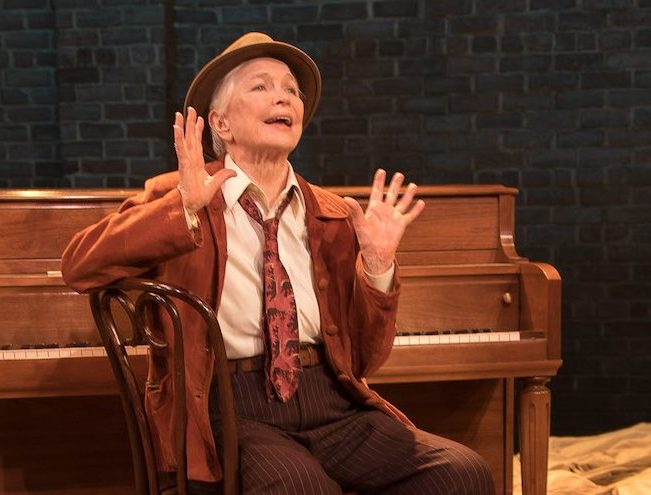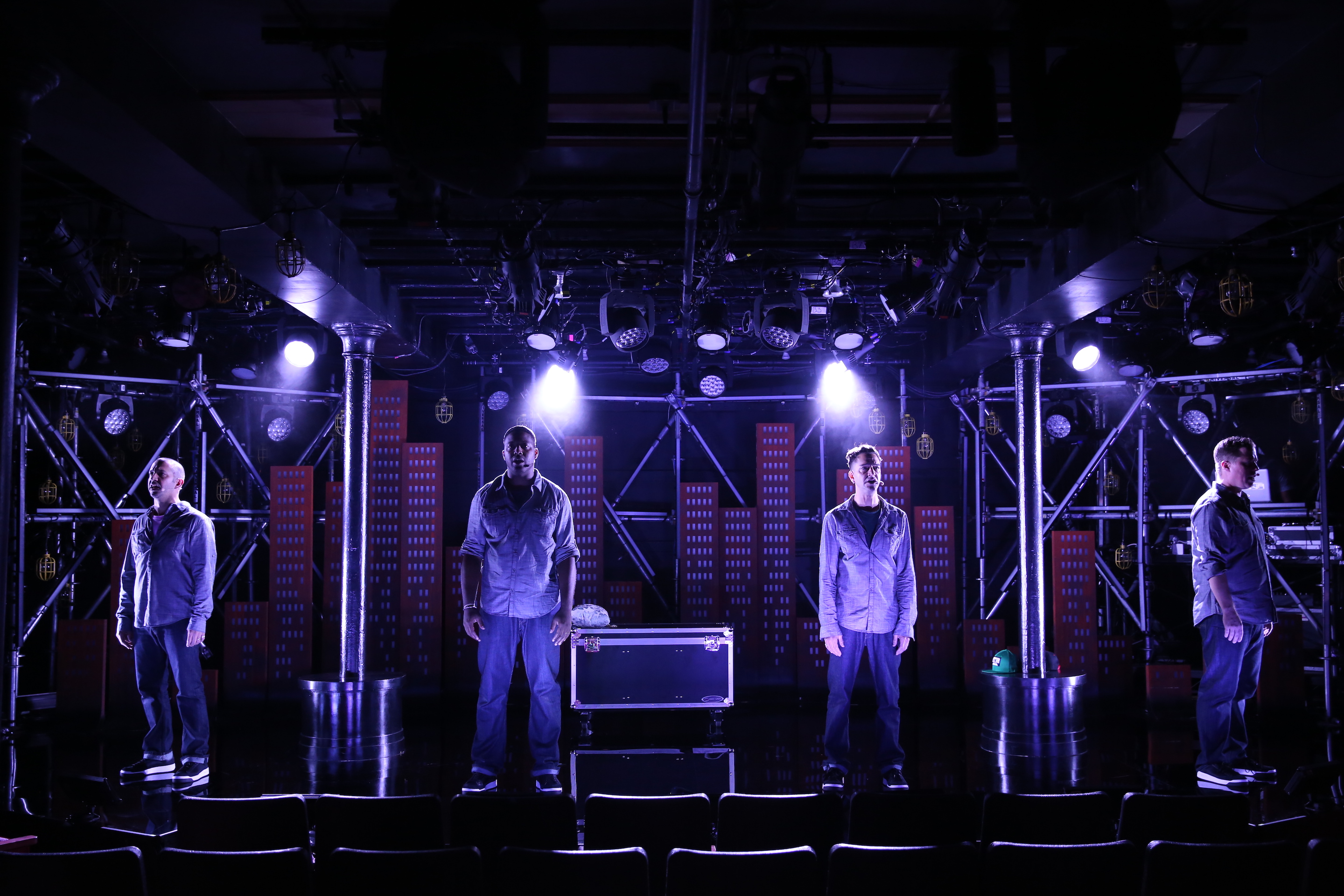By Marilyn Lester
It’s been 96 years since the premiere of Sean O’Casey’s The Shadow of a Gunman, a sturdy classic that The Irish Repertory Theater has breathed extraordinary life into. This intimate, immersive experience is a thrilling heart-stopper. Aided by a strong cast, director Ciarán O’Reilly transcends the temptation to mount this deceptively folkish work with vaudevillian airs, instead giving it great power and the teeth it deserves. The players all deliver award-winning work, with special kudos to Michael Mellamphy for his multi-layered portrayal of Shields.
The Shadow of a Gunman, the least produced of O’Casey’s Dublin Trilogy – Juno and the Paycock (1924) and The Plough and the Stars (1926) are the others – is a comedy wrapped in drama. If the first act seems a bit cracker-barrel, with its parade of characters, take a second look. There’s a lot going on here via O’Casey’s comedy and subtle wit and piercing evaluations of Irishness and human nature. The play is set in May 1920, in a single room in a Dublin tenement house, in the midst of the Irish War of Independence (1919-1921).
A poet, the apolitical, above-it-all Donal Davoren (James Russell) has come to room with his friend, the disillusioned, slothful peddler Seamus Shields (Michael Mellamphy) in one of the tenement’s shabby rooms. Key to the plot is the circulating rumor that Davoren is an IRA gunman in hiding, a romanticism he doesn’t deny. He’s happy to live in “the shadow of a gunman.” Like Shields, who was once a Volunteer in the Cause, and who now hides behind a façade of religion, he’s content to live in fantasy rather than the harsh reality of rebellion, war and chaos.
In due course, a succession of neighbors invade the room. Landlord Mulligan (Harry Smith) comes seeking a long overdue rent payment. The beleaguered Mr. Gallagher (Robert Langdon Lloyd), encouraged by the busybody Mrs. Henderson (Úna Clancy), bears a letter for the IRA he hopes Davoren will deliver. The buffoonish Tommy Owens (Ed Malone) fancies himself a true Patriot, while Mr. Maguire (Rory Duffy) a fellow peddler drops off a bag, which, like Chekhov’s gun, is central to the action of act two (the bag is among some other very clever and subtle foreshadowing of what’s to come). Most poignantly is the visit of the star struck young innocent, Minnie Powell (Meg Hennessy), who’s enamored of Davoren and his supposed patriotic glamour. In the second act, before all hell breaks loose, we meet Mr. Grigson (John Keating), an alcoholic, self-proclaimed loyalist, and his long-suffering wife (Terry Donnelly).
Each of O’Casey’s characters is a microcosm of the much larger nature of cultural and ethnic order, especially as observed in the witty and often sly observations of Shields. There’s pathos in the comedy though, and in act two the chickens come home to roost. A brilliantly staged, horrific raid by the English Auxiliary forces brings the outside reality of war into the life of the tenement. The scene is so well done that the terror is palpable.
O’Casey’s description of Davoren is of man in “an eternal war between weakness and strength.” More expansively, the males in the play are endemically weak, while strength resides in the females – especially the courageous and ill-fated Minnie, who Shields has reckoned like Kathleen ní Houlihan, a mythic symbol of Irish independence. These and other compare and contrast elements of the play are what help make it a stunning classic of the stage, universal in its themes and transcendent of a knowledge of Irish history or culture.
Finally, at play’s end, illusion is stripped away. We might conclude that, like Davoren, who bemoans at the top of act one “It is becoming painfully obvious that there is no peace to be found here,” that one way or another, to be human is to live perpetually in the shadow of a gunman.
Charlie Corcoran’s set is remarkably detailed and evocative, true to O’Casey’s explicit stage direction for it. Splendid period costumes are by Linda Fisher and David Toser. Lighting is by Michael Gottlieb and sound design by Ryan Rumery and M. Florian Staab. Production stage manager s April Ann Kline.
Photos: Carol Rosegg
The Shadow of a Gunman has a running time is 1 hour 45 minutes with one intermission. It plays through March 3 at the Irish Repertory Theatre, 132 W 22nd St, New York, NY, 212-727-2737 www.irishrep.org


